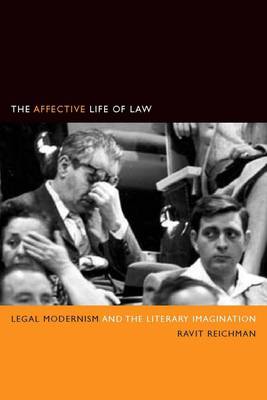
- Afhalen na 1 uur in een winkel met voorraad
- Gratis thuislevering in België vanaf € 30
- Ruim aanbod met 7 miljoen producten
- Afhalen na 1 uur in een winkel met voorraad
- Gratis thuislevering in België vanaf € 30
- Ruim aanbod met 7 miljoen producten
Omschrijving
Unhampered by the practical limits lawyers and judges face, literature expresses the unspoken sentiments that underpin legal doctrine. Through readings of Virginia Woolf, Rebecca West, and Hannah Arendt, as well as legal opinions and treatises, this book considers both law and literature as necessary complements in the efforts to take responsibility for the loss and damage inflicted by war. Ravit Reichman expertly charts the terrain that underwrites the law, proposing that the traumas, anxieties, and hopes that shape a culture's relationship to justice are realized in more than practical legal terms alone.
Between the world wars, traditional notions of responsibility proved inadequate to address postwar trauma. Legal changes, following changes in literary language, placed new demands on writers to tell the story of law's response to wartime atrocities, and literature began to encourage readers to imagine the world not as it is, but as it ought to be. Our understanding of concepts such as Crimes Against Humanity or Crimes Against the Jewish People is a legacy of modernism's relationship to narrative and subjectivity. The Affective Life of Law examines the inheritance of this legacy.
Specificaties
Betrokkenen
- Auteur(s):
- Uitgeverij:
Inhoud
- Aantal bladzijden:
- 232
- Taal:
- Engels
- Reeks:
Eigenschappen
- Productcode (EAN):
- 9780804761666
- Verschijningsdatum:
- 21/05/2009
- Uitvoering:
- Hardcover
- Formaat:
- Ongenaaid / garenloos gebonden
- Afmetingen:
- 152 mm x 229 mm
- Gewicht:
- 453 g

Alleen bij Standaard Boekhandel
Beoordelingen
We publiceren alleen reviews die voldoen aan de voorwaarden voor reviews. Bekijk onze voorwaarden voor reviews.









